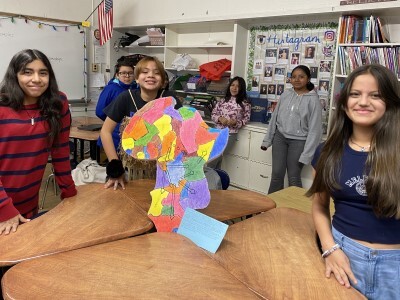Online PD Enhances Teaching Skills and Improves Best Practices
Topics

Educators are the lead learners in schools. If they are to enable powerful, authentic, deep learning among their students, they need to live that kind of learning and professional culture themselves. When everyone is part of that experiential through-line, that’s when next generation learning thrives.
Targeted training to improve teaching has become ever more important, and teachers now have a feast of options online to improve their practice.
A commitment to lifelong learning may be a hallmark of the vast majority of effective school administrators and well-regarded, erudite educators, yet targeted training to improve teaching skills and improve best educational practices has not always been the paradigm in our field.
A Brief History of Teacher Professional Development
Best practices in education were largely influenced by research and developments in the field of psychology during much of the 20th century; however, the concept of continuous professional development and targeted training to upgrade skills for educators to provide higher-quality instruction for all students became a concern in the latter part of the 20th century, particularly with elected officials passing legislation and faculty organizations engaging in intense discussions. To elucidate, professional development (PD) workshops for educators began to grow in importance, intensity, and number as standardized testing took on a new role in terms of teacher accountability for measuring student progress. As an example, No Child Left Behind (NCLB) legislation passed in 2001 required states to adopt “high-quality” training for all teachers in the state, but what, precisely, constituted “high-quality” training was left for individual states to decide (Borko, 2004).
While many educators had once met every one (or even two) months at a regional office or central metro location to receive a full-day lecture from a longtime teacher, many school districts now offer more intensive and targeted “professional learning cycles” in which participants prepare lesson plans and review student work products collectively with colleagues from the same as well as other schools and learn from experienced district coaches.
Now, thanks in large part to advances in technology, administrators, educators, and support personnel all can upload and access information via shared folders stored online. In addition, educators can grow their skills and improve their craft by partaking in free, online discussions, webinars, and learning sessions available from a variety of sources, regardless of geographic location. Fields are as diverse as they are informative.
Collaboration and Best Practices Get a Boost from Online Professional Learning
Online professional learning is like comparing a lone, warmed-over entrée to a superior smorgasbord, as delving beyond quotidian course corridors can improve best practices in immeasurable ways.
First, utilizing online PD offers unique opportunities for educators to develop and enhance skills in “team building, professionalism, interpersonal communication, technology, teaching, and accountability” (Filipe, Silva, Stulting, & Golnik, 2014). By utilizing new technological platforms, collaboration and learning can occur regardless of geographical distance or institute locale; new learning can also occur at any given moment and anywhere in the world in real time. For example, via online PD offerings, classroom management experts in Taipei, Taiwan can impart best practices to educators in large urban areas in North America in real time. In a similar vein, educators across East Asia can improve their competence in enhancing conversational discourse and improving communicative techniques currently promoted in Western classrooms via online PD offerings.
Furthermore, intensive online PD sessions can train teachers how to set appropriate classroom tones, prepare for impending student-teacher interactions, and instruct teachers how to model best practices. This may include appropriate communication, modeling responsibility, setting attainable goals, promoting creativity, and information sharing strategies (Kim & Bonk, 2006). In addition, online PD can also create a feasible platform for honest dialogue and interactive group activity. “Results of group deliberation are not only more extensive than individual efforts, but the process by which the group works together allows group members to share their ideas to reach group consensus” (Oliva & Gordon, 2013, p. 29). Online PD thus engenders greater discussion, makes cooperative endeavors better understood, and fosters creativity and supported online risk-taking compared with tasks completed individually.
Finally, enhanced online PD experiences that lead to better educator training can reap immediate, positive, tangible rewards via improved student classroom performance and higher formative and standardized test scores. When educators are able to decipher best practices via online webinars and online training sessions to implement best teaching methods in their classrooms, students ultimately benefit from more accurate instruction, fine-tuned, focused, immediate feedback, and an increased educator enthusiasm to put theory into practice to help all students.
For educators hungry for enticing online PD sustenance, here are some substantive stratagems to sink your educational teeth into:
Teachersfirst.com offers an entire catalog of free online workshops, with diverse topics that include technology tools, digital storytelling, and enhancing digital citizenship. Educators and other professionals in the field are encouraged to view their free upcoming workshops.
EdWeb.Net boasts free online webinars on sui generis topics such as closely examining the developmental behavior of special needs students, infusing diversity into the writing curriculum, and tips for tech-savvy leadership.
Public Broadcasting Station (PBS) TeacherLine offers an assortment of online professional learning opportunities for pre-K to grade 12 educators. Credits may be applied towards obtaining or renewing professional educator certification, but participants are urged to verify this with the district prior to enrolling. Each course costs $49.00 to enroll. Group discounts may be available.
Fantastic proverbial food for thought is readily available on Technology, Entertainment, and Design (TED) Talks, a nonprofit organization dedicated to the dissemination of unique ideas. Administrators, educators, and all support staff can view these poignant discussions and reflect in groups upon what they had learned and how they could apply what they had learned to improve their craft.
ASCD.org offers free online webinars to stay current and improve best practices. Registration is free, and topics include critical questions for inspiring classroom excellence, planning for inquiry-based instruction in mathematics and science, cultivating curiosity, and the “gamified” classroom. Delve deeper into these singular subjects and explore other scholarly gems.
National Science Teachers Association (NSTA) Learning Center provides online seminars for educators (gratis) related to science, engineering, and innovation (Bruder, 2012). In addition, AnnenbergLearner offers an e-mail list (“Teacher Talk”) for teacher collaboration as well as links to websites that provide supportive materials, activities, and forums (Bruder, 2012).
Regardless of whether you seek credits to enhance your resume, are looking to satisfy district certification requirements, or simply aim to improve your craft, explore online professional development. You may be amazed at your ability to develop skills and increase your confidence by simply tapping a finger on a screen or at the click of a mouse and the use of a personal computer.
References
Borko, H. (2004, November). Professional development and teacher learning: Mapping the terrain. Educational Researcher, 33(3). Retrieved from: http://media.leidenuniv.nl/legacy/educ-researcher-33-(2004)-3-15---borko---professional-development-and-teacher-learning.pdf.
Bruder, P. (2012, November). Professional development: free, online, interactive and engaging. New Jersey Education Association: NJEA Review. Retrieved from: http://www.njea.org/news-and-publications/njea-review/November-2012/toolbox-professional-development-free-online-and-engaging.
Filipe, H. P., Silva, E. D., Stulting, A. A., & Golnik, K. C. (2014, Apr-Jun). Continuing professional development: Best practices. Middle East African Journal of Ophthamology, 21(2): 134-141. Retrieved from: https://www.ncbi.nlm.nih.gov/pmc/articles/PMC4005177.
Kim, K. J. & Bonk, C. J. (2006). The future of online teaching and learning in higher education. Education Quarterly, Number 4. Retrieved from: https://www.educause.edu/ir/library/pdf/eqm0644.pdf.
Oliva, P. F., & Gordon, W. R. (2013). Developing the curriculum (8th ed.). Boston, MA: Pearson.




